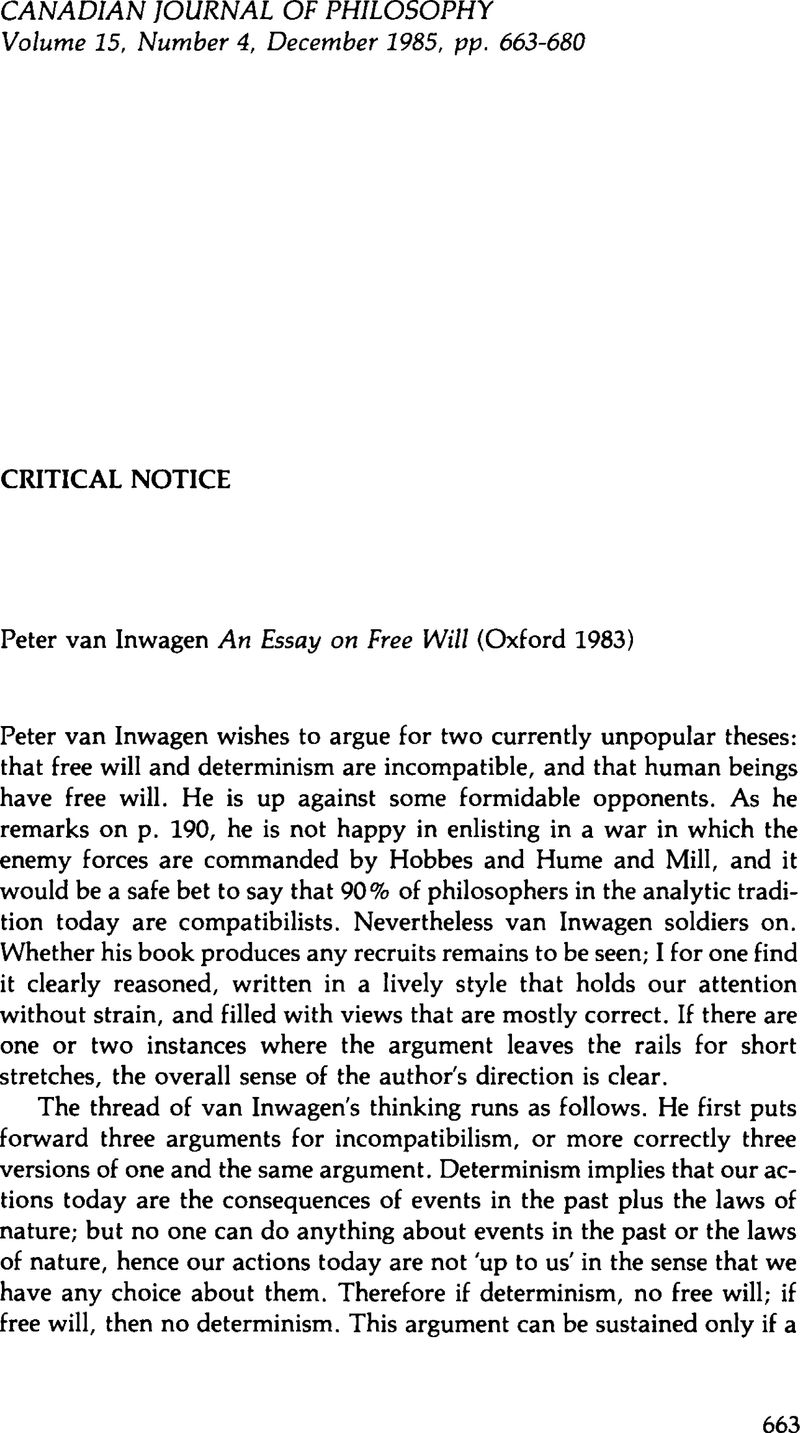Published online by Cambridge University Press: 01 January 2020

1 We could express this (loosely) by saying that truth and knowledge are supervenient properties of the world, while belief and prediction are empirical properties.
2 An objection might be raised with the help of an example. A logically necessary condition for giving an eyewitņess account of events that occurred in 1939 is having been born in 1939 or earlier; the fact that X does not satisfy this condition would seem to entail that X lacks the ability to perform this act. Note however that ‘giving an eyewitness account of events that occurred in 1939’ is what Richard Gale would call a ‘temporally impure’ description, i.e., a description some of the conditions of applicability of which require that certain events take place at one time, while others require that other events take place at another time. (See Gale, The Language of Time (New York: Humanities Press 1968) 158Google Scholar.) By contrast, ‘giving an account of events alleged to have occurred in 1939’ is not temporally impure. Since temporally impure descriptions bridge state-descriptions at different times, our principle must be amended to read that it is possible to perform a ‘temporally pure’ act in the absence of a logically necessary condition for its accomplishment, but not in the absence of a causally necessary condition. (Contrast van Inwagen's note 20 on p. 229).
3 Causality and Determination,’ (1971). reprinted in Sosa, ed., Causation and Conditionals (Oxford: Oxford University Press 1975)Google Scholar
4 Dretske, F. and Snyder, A. ‘Causal Irregularity,’ Philosophy of Science 39 (1972) 69–71CrossRefGoogle Scholar
5 ‘Alternate Possibilities and Moral Responsibility,’ The Journal of Philosophy 66 (1969) 829-39
6 Kenny, Anthony ‘Freedom, Spontaneity and Indifference,’ in Honderich, T. ed., Essays on Freedom of Action (London: Routledge 1973) 89–104Google Scholar